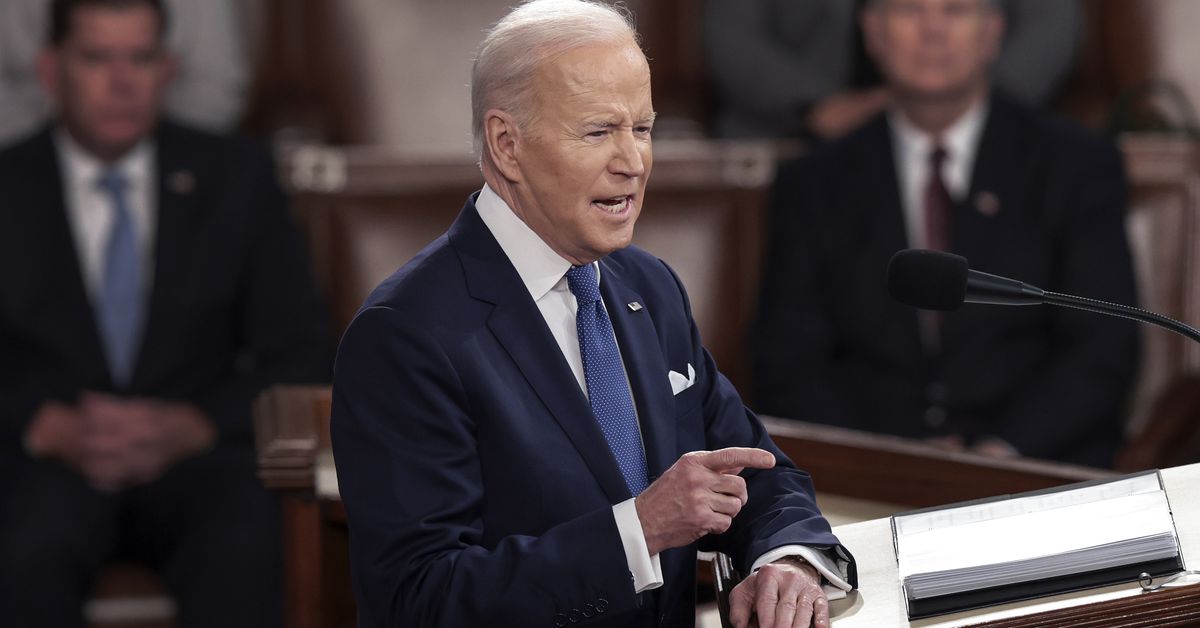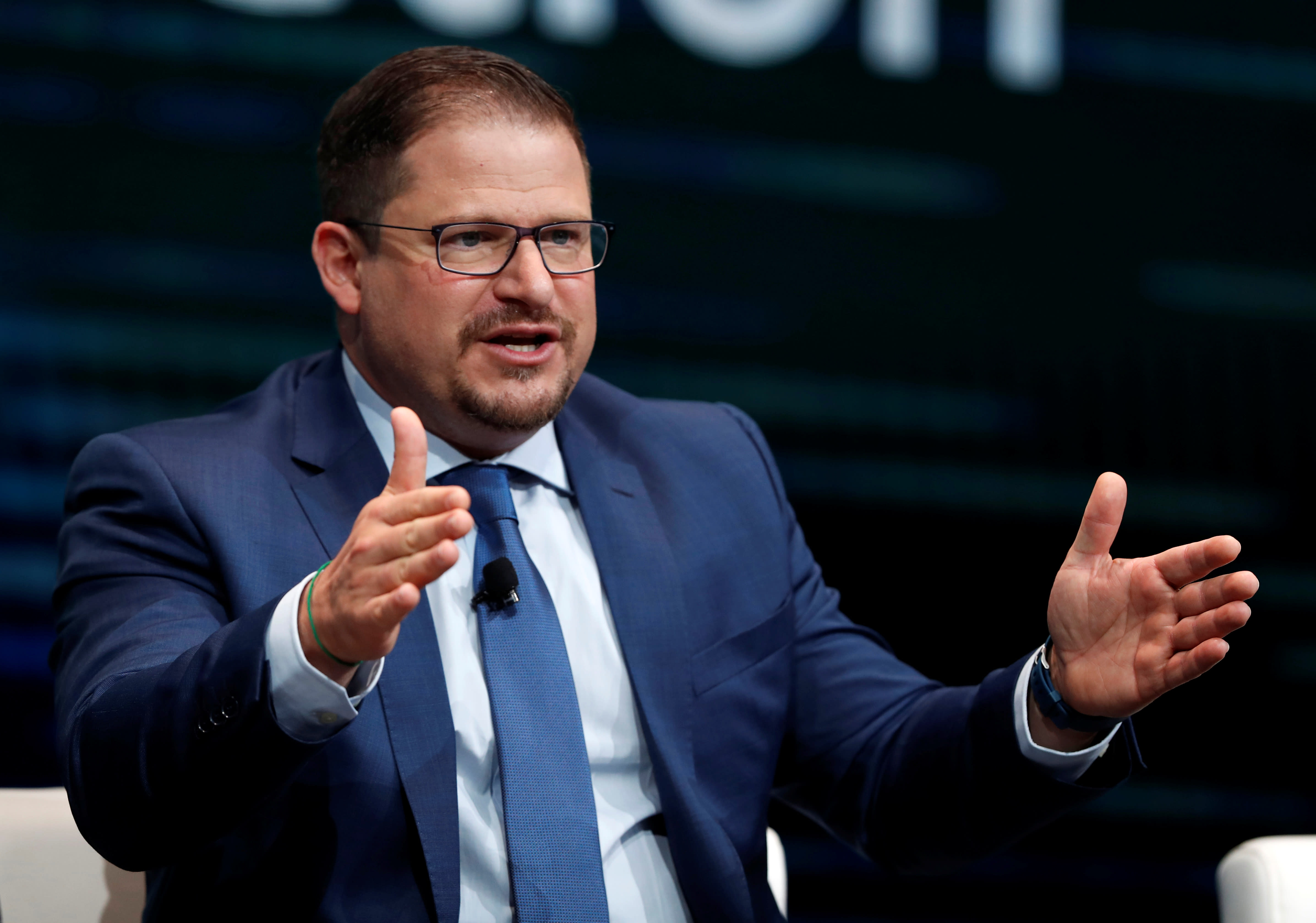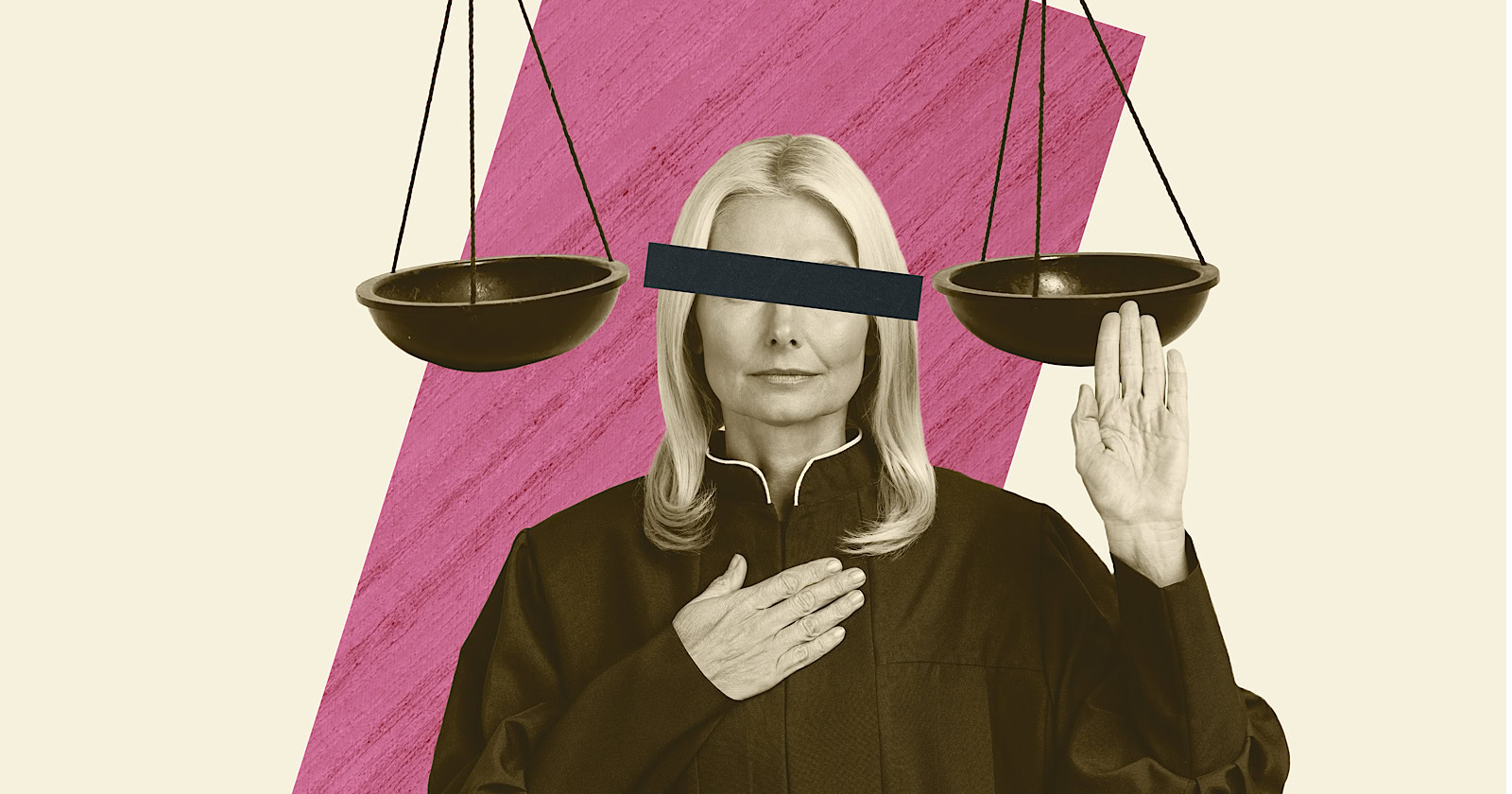Biden threatens Big Tech over its “national experiment” on children
President Joe Biden delivers the State of the Union address during a joint session of Congress in the Capitol’s House Chamber on March 1. | Win McNamee/Getty ImagesIn his State of the Union speech, the president vowed to hold...

President Joe Biden believes America, and especially its young people, are experiencing a mental health crisis — and according to his State of the Union address on Tuesday night, social media is one of the root causes.
In his speech, Biden promised to “hold social media platforms accountable for the national experiment they’re conducting on our children for profit.” To make his point, he referred to a special guest in the audience, former Facebook employee Frances Haugen, who shared internal company documents with the press and Congress last fall that showed Facebook had publicly downplayed its own research that found a connection between its products and mental health issues in some teenagers. One of the downplayed studies found that Instagram made body image issues worse in one out of three teenage girls.
“It’s time to strengthen privacy protections, ban targeted advertising to children, demand tech companies stop collecting personal data on our children,” Biden said.
The president’s mentions of social media show how regulating the tech industry is a real priority for his administration, at a time when nearly 70 percent of Americans think tech companies hold too much power, and 56 percent believe more government regulation is needed. Biden has been more supportive of tech reform than some initially expected — he’s notably appointed Big Tech critics to key leadership positions, like Tim Wu in the White House and Lina Khan at the Federal Trade Commission. But Wednesday’s speech marked one of the first times that Biden has described how he wants to rein in tech’s power. To do so, he focused on a popular topic — protecting teens and children online — that politicians on both sides of the aisle are concerned about. It’s worth noting that is a narrower focus than broader bipartisan calls to break up certain tech companies under antitrust laws, or regulate how social media companies deal with moderating content on their platforms.
“This is really the first time that Biden has come out and made a major policy statement about [social media],” Jim Steyer, CEO and founder of the nonprofit Common Sense Media, which promotes safe technology use for children, told Recode. “And I think the fact that he’s framing it through the lens of kids and teens and families is terrific.”
Biden’s remarks about social media’s harm were mentioned as part of his agenda to address what he’s calling the country’s mental health crisis. Depression rates have long been on the rise in the US, and during the pandemic, those rates have gone up significantly. Some two out of five US adults, and 56 percent of young adults, reported symptoms of anxiety or depression during the pandemic, according to a study last year by the Kaiser Family Foundation.
Biden’s argument, which he further elaborated on in a fact sheet released ahead of his speech on Wednesday, is that social media companies are contributing to this problem, particularly with teens.
The president didn’t mention specific companies by name in his speech. But social media platforms such as Facebook, Instagram, YouTube, TikTok, and other apps have all faced criticism from some researchers, children’s advocates, and lawmakers who say these products can be addictive, can promote harmful and inaccurate information, and can enable harassment and exploitation.
In order to address this issue, Biden has called on Congress to strengthen privacy protections, ban targeted advertising and the collection of personal data on children, design their products to be less “addictive,” and fund more research in the field, according to his speech and his plans.
While we still don’t know exactly how much social media impacts teenagers’ mental health, and whether positive effects can outweigh the negative, some research — including Instagram’s internal report that Haugen leaked — has shown how social media can reinforce negative emotions such as suicidal thoughts, particularly in teens already dealing with these mental health issues.
Haugen’s testimony to Congress on the matter last year was well-received by politicians on both sides of the aisle, with senators including Ted Cruz (R-TX) and Amy Klobuchar (D-MN) applauding Haugen for revealing the tech industry’s perceived failure to protect young people.
There are currently several bipartisan bills in Congress to initiate the kinds of reforms Biden wants, including an update to the Children and Teens’ Online Privacy Protection Act proposed by Sens. Ed. Markey (D-MA) and Bill Cassidy (R-LA), and the Kids Online Safety Act by Sens. Marsha Blackburn (R-TN) and Richard Blumenthal (D-CT).
Aside from calling for regulation, Biden will also allocate at least $5 million of his budget for 2023 toward advancing research on social media’s harms and how to address these issues. He will also task the Department of Health and Human Services with launching a national center of excellence on social media and mental wellness that will create and share guidance on the topic, according to a fact sheet from the White House released on Tuesday prior to the address.
Biden’s choice to focus on social media in his mental health plan is an area where he may likely see bipartisan support. Other areas of tech policy, like content moderation, are far more divisive. That’s because Democrats have called for tech companies to remove more misinformation that they view as harming democracy, and many Republicans argue that tech companies are already taking down too much content, for what they say are politically biased reasons. Helping protect children from the mental harms of social media is a topic that liberals and conservatives can find more common ground on, so it makes sense Biden is focusing his efforts here.
While there are no clear solutions agreed upon by Congress for now, this may be one of the most likely areas where we could see tech reform in the near future.

 JimMin
JimMin 

























.jpg&h=630&w=1200&q=100&v=6e07dc5773&c=1)






